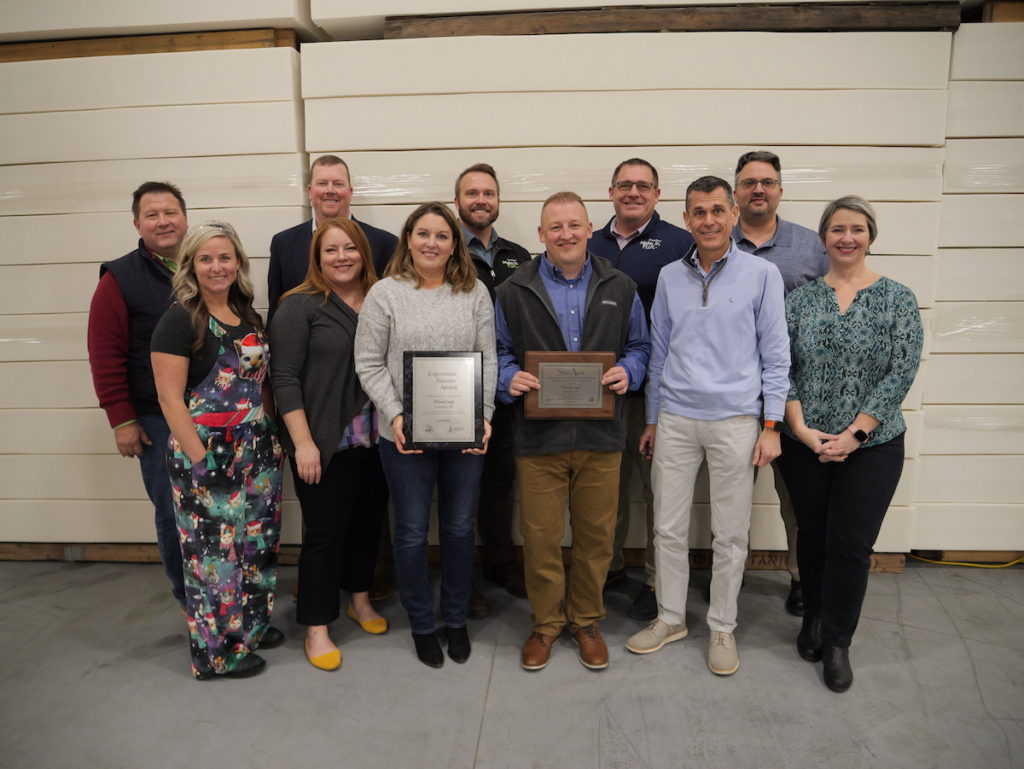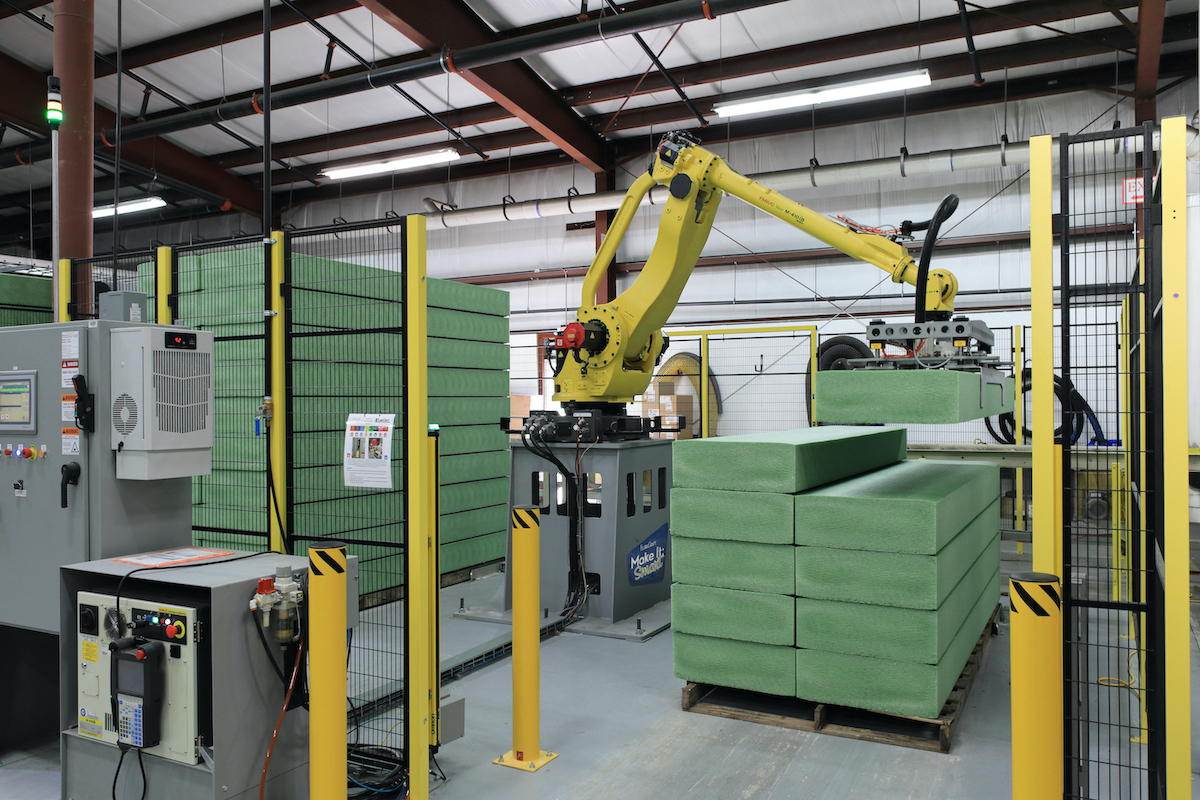
December 19, 2023
FloraCraft Receives MIOSHA Awards for Workplace Health, Safety Excellence
FloraCraft®, the world’s leading manufacturer and marketer of floral and craft foam, has received the MIOSHA Consultation Education and Training (CET) Silver Award and MIOSHA CET Ergonomics Award, recognizing the company as a leader in workplace health and safety.
These awards are only given to organizations who meet the requirements outlined by Michigan Occupational Safety and Health Administration (MIOSHA). FloraCraft worked alongside MIOSHA for the past year to identify, track and measure a variety of safety benchmarks before being encouraged to apply for the awards.
“We are honored to be recognized by MIOSHA for building a systematic safety culture that places employee engagement at the forefront,” said James Morkert, FloraCraft vice president of culture, safety and people. “We have actively worked with our management team and safety committee to build a proactive approach to safety into our workplace. We’re particularly proud of our work to track workplace hazards, which allows us to identify potential issues and quickly put solutions in place.”
The awards were presented to the company during its annual holiday luncheon by representatives from MIOSHA, including MIOSHA Consultation Education and Training Division Director Tarah Kile.
“FloraCraft has made improving their worker safety and health a top priority,” Kile said. “The company’s excellent health and safety program ensures each worker goes home at the end of their shifts.
“Since the program’s inception in the early 90s, less than 200 companies have received these awards out of 300,000 companies in Michigan so it’s a big accomplishment.”
The MIOSHA CET Silver Award acknowledges excellence in workplace safety and health standards and creating a workplace culture prioritizing safety.
To be considered for the Silver Award, employers must:
- Implement safety and health management systems.
- Undergo a comprehensive consultation visit.
- Demonstrate the current and last year’s complete total case incident rate and days away, restricted and transferred rate are both below industry average.
- Score and meet the goals of at least 20 of 32 attributes in MIOSHA’s safety and health management system.
- Implement at least one attribute in each of the five main categories: management leadership, employee involvement, worksite analysis, hazard prevention and control and safety and health training.
“At FloraCraft, we’re all responsible for safety,” Morkert continued. “In our continued relationship with MIOSHA, we are delighted to create an exceptional workplace where collaboration and innovation take place. From our safety managers’ monthly hazard inspections to robust signage and employee engagement opportunities, we’re ensuring safety is always top of mind and embedded into our organizational culture.”

Robotic billet stacker
The MIOSHA CET Ergonomics Success Award is given to employers who have instituted ergonomic improvements that substantially reduce musculoskeletal disorders. FloraCraft won this award for its implementation of a robotic billet stacker and the robotic case packer.
Criteria for the Ergonomic Success Award include:
- Employer’s last 12-month total case incident rate is below the industry average.
- Employer must have implemented at least 20 of the 32 attributes in MIOSHA’s safety and health management system.
- Employer has had at least a 25% reduction of musculoskeletal disorder incidence rate over the previous 12-month period, with no increase in its total case incidence rates.
- Improvement must have occurred through ergonomic engineering controls, administrative controls and incentives.
- Employer has a method for obtaining employee input and actively involves employees in the improvement process.
FloraCraft invested in a robotic billet stacker, a machine that stacks billets automatically onto pallets, eliminating the need for team members to perform repetitive lifting from awkward positions. After measuring its success, a robotic case packer was also purchased to assist with this operation. With these safety investments, team members can now place up to 260 boxes an hour on a pallet located on the floor with final heights reaching above head, reducing the burdensome aspect of this task and improving overall morale.
 Subscribe
Subscribe




